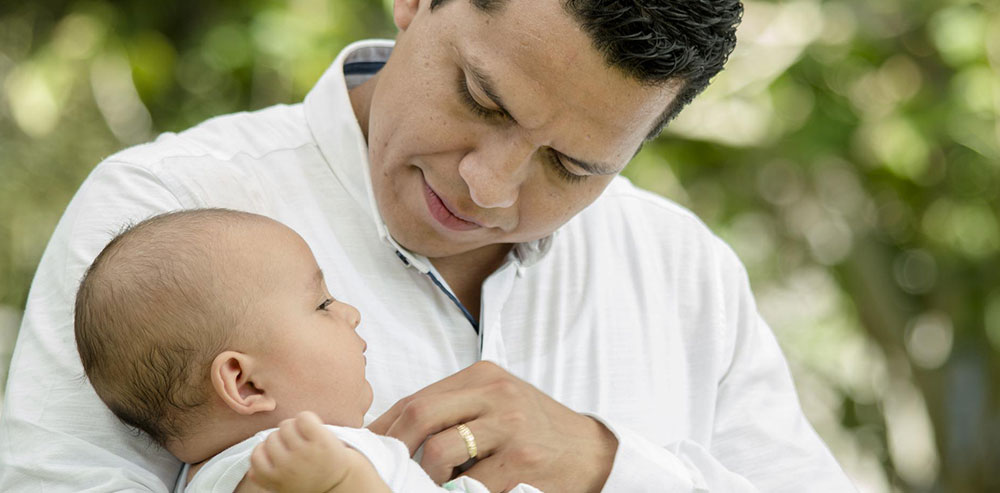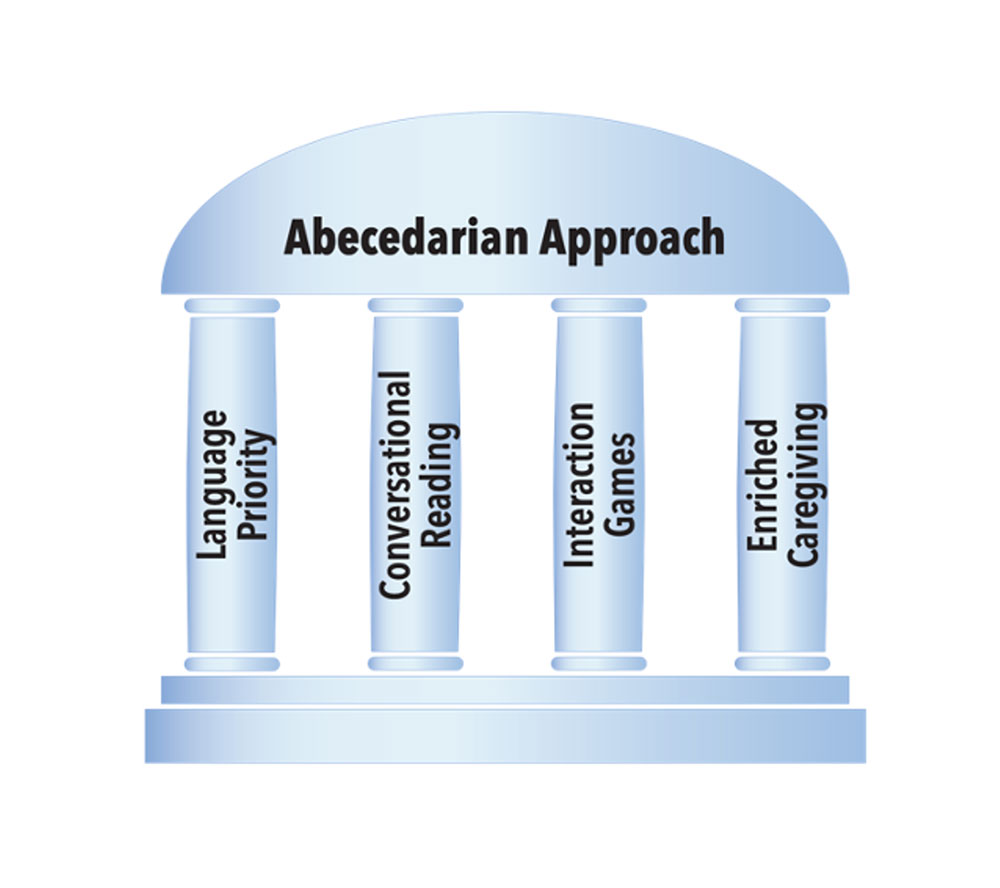
 Dr. Joseph Sparling and Dr. Craig Ramey, founders of the Abecedarian Approach, modeled the Abecedarian Approach program on elements of a stimulating home environment, strongly supplemented with emerging evidence from the new science of infant learning. They recognized that very young children naturally spend much of their day in regular, predictable daily routines, such as eating, and dressing; often these routines require adults to have one-on-one interactions with children, creating small but meaningful teachable moments throughout the day. Other parts of the day were times for exploration and play, so it was also important to build in opportunities for children to be active learners, engaged with responsive, playful adults. The Abecedarian Approach program was designed to build on the natural rhythms of a child’s day to foster all aspects of the child’s development, with a particular emphasis on language.
Dr. Joseph Sparling and Dr. Craig Ramey, founders of the Abecedarian Approach, modeled the Abecedarian Approach program on elements of a stimulating home environment, strongly supplemented with emerging evidence from the new science of infant learning. They recognized that very young children naturally spend much of their day in regular, predictable daily routines, such as eating, and dressing; often these routines require adults to have one-on-one interactions with children, creating small but meaningful teachable moments throughout the day. Other parts of the day were times for exploration and play, so it was also important to build in opportunities for children to be active learners, engaged with responsive, playful adults. The Abecedarian Approach program was designed to build on the natural rhythms of a child’s day to foster all aspects of the child’s development, with a particular emphasis on language.
The Abecedarian Approach consists of four pillars that support children’s development: Language Priority, Conversational Reading, Interaction Games (formerly LearningGames), and Enriched Caregiving.
The videos below, filmed at Lord Selkirk Park Child Care Centre, give more information about each element.
Abecedarian focuses on individual, frequent, and intentional interactions between adults and children every day. These interactions should be enjoyable for both adult and child, while still providing learning opportunities and fostering the child’s language skills. In a group care Abecedarian setting, each child has a primary caregiver attached to them, who is responsible for designing an individualized program tailored to meet the child's needs, interests, and skills.
When asked to describe the difference between Abecedarian programming and other centres, a staff member at Lord Selkirk Park said,
"[M]y style has changed quite dramatically since my other centres. Before it was all about transitioning from crafts to story time to having all those kinds of things and I didn’t focus on individual children and what their needs were. Everything was done in a group activity, let's all go outside as a group, let's all go have circle times as a group and eat as a group. Here [we focus more on] what this child needs right now… it's more individual attention. I just feel that Abecedarian… is making every program fit every individual child, suiting their needs based on their life situation."
Watch the following clip to see how a caregiver intentionally fosters a child's language development.